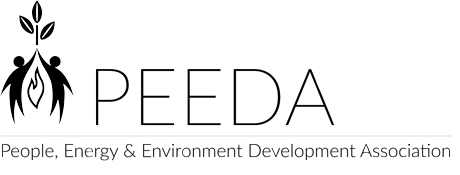Vision, Mission & Objectives
Vision
Nepal is one of the poorest countries in the world. Large proportions of the population live in the mountainous regions of Nepal, surviving on subsistence agriculture with no access to electricity with which other economies may be possible. Deforestation is a major environmental problem in Nepal, and is made worse by increasing population densities and the subsistence economy.
Hydropower is one of Nepal’s few renewable resources, which could be harnessed to provide electrical power to a larger proportion of the population and be sold to provide a source of income. This would raise living standards, reduce the current human impact on the environment, and provide general welfare to the people, and particularly the rural poor.
PEEDA’s vision for Nepal is that poverty will be substantially reduced through, among other initiatives, effective, socially responsible, and environmentally sustainable development of renewable energy resources. Its ultimate vision is that all the people of Nepal will enjoy economic security as a result of the effective utilization of Nepal’s renewable energy resources.
Mission
PEEDA is an NGO dedicated to improve livelihoods of communities, particularly the poor, by collective utilization of renewable energy resources, while ensuring due care for the environment.
This is achieved by establishing institutions active in the renewable energy sectors, promoting cooperation between relevant stakeholders to undertake development projects, advocating for policy & regulatory reforms and undertaking targeted research.
The principle behind the activities of PEEDA is that the poor of Nepal, who live mainly in rural areas, should share in the benefits of Nepal’s renewable energy resources, but this will not happen without dedicated and sustained effort.
PEEDA is committed to the values of empowering individuals & communities to help themselves, non-discrimination, and maintaining good relationships.
Objectives
The objective of the organization is to improve livelihoods of communities, particularly the poor, by communal utilization of renewable energy resources, while ensuring due care for the environment. The main objectives are:
- To collect information, investigate, and carryout research works on the physical, environmental, economic, social, legal, and technical aspects of different energy resources.
- To facilitate Nepalese, especially the rural communities, with the utilization of such resources.
- To provide information regarding generation and utilization of renewable energy to the public and make them aware of it. Also to lobby government and legislators to create favourable policies for development, particularly by the poor, of renewable energy resources.
- To encourage and promote the development of small enterprises such as: ropeway, agricultural development, pumped irrigation etc. which use electrical energy in the rural areas.
- To implement and promote projects related to renewable energy for the welfare of people and for the economic development.
- To promote technological transfer in the fields requiring special consultation.
- To establish and develop institutions which contribute to and serve the renewable energy sector in Nepal.
- To serve as a medium for lending foreign support to the Nepalese hydroelectric projects.
Activities
- Identifying institutional gaps in the hydropower industry.
- Channelling finance for the founding of institutions.
- Forming institutions.
- Providing Board-level governance for institutions.
- Providing advice / assistance on legal as policy level issues.
- Advocating for policy change.
- Conducting training for capacity building.
- Facilitating the establishment of community organizations in appropriate areas to perform socio-economic developmental works.
- Collaborating and conducting necessary research and development activities related to energy and hydropower development sectors, fuel substitution, energy efficiency and climate change mitigation.
- Motivating entrepreneurs for electricity based enterprise development
- Networking with other stakeholders.
PEEDA also conducts research type studies for other organizations to replicate and share the best ideas and experiences and provide valuable inputs, which will build its capacity to enhance the efficiency and contribute its expertise in the energy and environment field. It also provides trainings related to energy and environment development activities that would help to promote the sustainability in Nepal.
Geographical Working areas covered by the organization
PEEDA’s working area includes all the districts within Nepal with a particular focus on the rural areas of the country.
Target groups of the organization
Community people, particularly the poor, residing in remote Nepal are the target groups of the organization.
